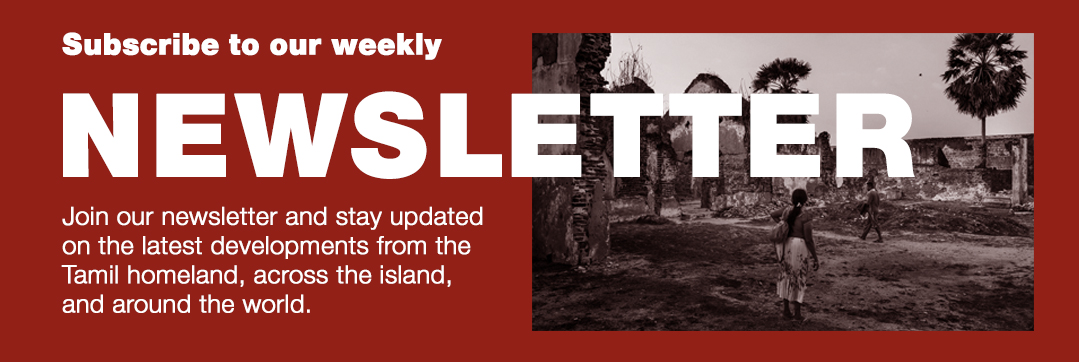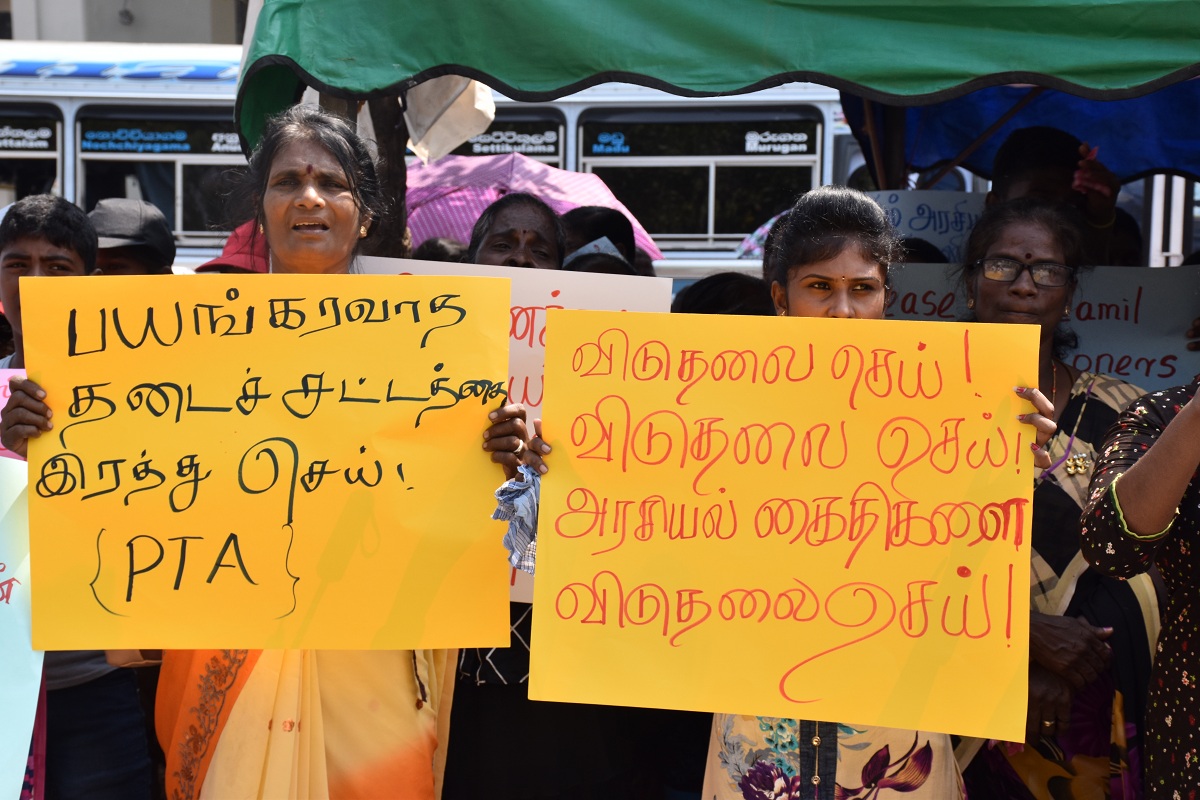The Sri Lankan government have used the notorious Prevention of Terrorism Act (PTA) to crackdown on anti-government protesters, with three Sinhalese student leaders being detained for their participation in the mass protests that swept the island earlier this year. Successive Sri Lankan regimes have used the draconian legislation for decades to detain Tamils and Muslims arbitrarily and to extract false confessions through the use of torture. While the legislation has been repeatedly condemned by activists in the North-East and the international community, Sri Lanka has failed to repeal it. A series of US, EU and Canadian representatives, alongside international human rights organisations, expressed their concern over the Sri Lankan government’s use of the PTA to detain the protesters.
In a tweet, the European Union said it was "concerned" by the development, and claimed that the Sri Lankan government had given assurances to the international community about the “de-facto moratorium of the use of the PTA”. Despite consistently backtracking on its human rights obligations, Sri Lanka still continues to surprise the international community by failing to adhere to its commitments.
In another superficial move to appease the international community ahead of the UNHRC session in Geneva next month, Sri Lanka lifted the ban on some Tamil diaspora organisations. Tamil activists in the diaspora have called the move a “farce” that has been seen time and time again as Sri Lanka gets ready to discuss its human rights record on an international stage.
Last week, Tamil families of the disappeared met with UN officials who said the “UNCT will continue to work through the human rights mechanism to ensure justice for victims and inter-communal reconciliation in the North and East.”
The UK recently announced a new trade scheme programme which will boost Sri Lanka’s struggling economy and support jobs but failed to comment on the island’s human rights record. If the UK grants trade concessions to Sri Lanka without addressing it's human rights violations, then the UK will be complicit in whitewashing Sri Lanka's abuses.
For over a decade, Sri Lanka has been backsliding on its commitments and has insisted that a domestic mechanism will provide accountability and justice for Tamils but as expected, the government has failed to take any concrete action to address Tamil grievances. It is time for decisive action from international actors to ensure that Sri Lanka delivers on its human rights obligations.

Sign up for Tamil Guardian's Newsletter
Tamil Guardian is launching a newsletter to provide regular, detailed and accurate updates of developments from the Tamil homeland, across the island and around the world.
By joining our newsletter, our top stories, features, interviews and a note from our Editor-in-Chief will be delivered to your inbox on a fortnightly basis.
Sign up below.

